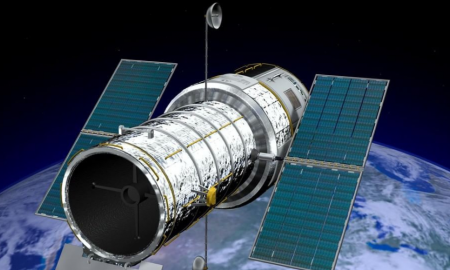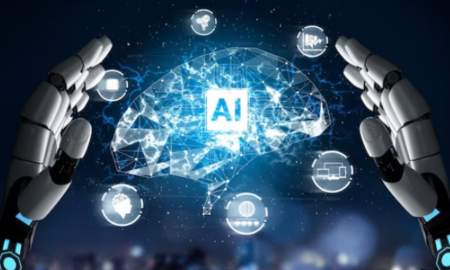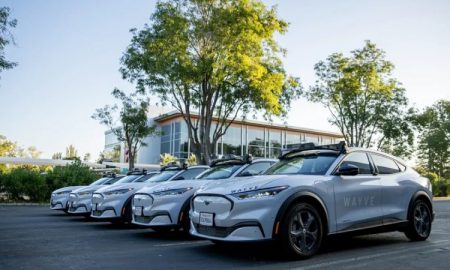
AI Science at Work: How AI is Redefining Scientific Research

AI science is reshaping the landscape of scientific research, transforming how discoveries are made, and experiments are conducted. This evolution in AI capabilities creates opportunities and challenges within the scientific community. As artificial intelligence advances, its role in research is becoming more prominent. It promises to revolutionize traditional methods while raising critical questions about the future of science.
The Emergence of AI Scientists
Developing AI systems that can perform scientific research independently is a significant milestone. Sakana AI Labs recently introduced an “AI scientist” capable of conducting the entire lifecycle of a scientific experiment. From generating hypotheses to coding algorithms and even writing research papers, this AI system aims to automate the complexities of scientific discovery. AI science is not just about automating tasks; it’s about rethinking how science can be conducted.

Kevin Ku | Pexels | Developing AI systems that can perform scientific research independently is a significant milestone.
AI Science Bridging Gaps in Knowledge
AI science offers the potential to bridge gaps in scientific knowledge by rapidly analyzing vast amounts of data. Traditional scientific research requires extensive literature review, hypothesis generation, and rigorous experimentation. AI can streamline these processes by processing and synthesizing existing research, allowing scientists to focus on novel insights. This ability to rapidly process information is one of AI’s most significant contributions to scientific research.
The Role of Machine Learning in AI Science
Machine learning, a subset of AI, plays a crucial role in this transformation. It enables AI systems to learn from existing data and generate new insights. In scientific research, machine learning can be used to identify patterns and correlations that human researchers might overlook. These insights can lead to the discovery of new theories or the refinement of existing ones. AI science, driven by machine learning, has the potential to accelerate scientific progress.
AI as a Research Assistant, Not a Replacement
Despite the advancements in AI science, the idea of AI fully replacing human scientists remains controversial. AI tools are designed to support researchers, not replace them. AI can assist in finding relevant studies, analyzing data, and even writing initial drafts of research papers. However, the interpretation of results and the formulation of new hypotheses still require human intuition and creativity. The collaboration between AI and human scientists could lead to more effective and efficient research outcomes.

Mikhail Nilov | Pexels | Interpreting AI results and formulating new hypotheses still require human intuition and creativity.
Ethical Considerations and Challenges
The rise of AI science brings ethical considerations and challenges to the forefront. One primary concern is the potential for AI-generated research to flood the scientific community with papers of questionable quality. This could overwhelm the peer review process, which is already under strain. Additionally, the reliance on AI in scientific research raises questions about the validity of findings and the potential for bias in AI-generated results. Ensuring the integrity of scientific research in the age of AI is a challenge that must be addressed.
AI Science and the Future of Research
The integration of AI into scientific research is inevitable. As AI systems become more sophisticated, their role in science will continue to grow. However, the future of AI science depends on how these tools are used and regulated. Balancing the benefits of AI-driven research with the need for human oversight and ethical considerations will be crucial in shaping the future of scientific discovery.
More in Tech
-
`
What Quarters Are Worth Money? Tips to Identify Valuable Coins Today
In coin collecting, certain quarters stand out not just for their face value but for their potential worth, much beyond that....
June 21, 2024 -
`
How Does the Hubble Telescope Work and Where Is It?
Have you ever gazed at the night sky and marveled at the twinkling stars and wispy clouds of gas and dust?...
June 15, 2024 -
`
5 Savings Accounts That Will Earn You the Most Money in 2024
In 2024, choosing the right savings account is more critical than ever. With the array of options available, knowing which savings...
June 5, 2024 -
`
The Complete Relationship Timeline of Taylor Swift & Travis Kelce
When you think of unlikely couples, Taylor Swift and Travis Kelce might not be the first pair that comes to mind....
May 29, 2024 -
`
What is Business Administration and What Opportunities Does it Offer?
In today’s bustling world of commerce and industry, the term “business administration” often looms large, yet its true essence remains shrouded...
May 22, 2024 -
`
What is AI? Exploring the World of Artificial Intelligence
In today’s rapidly evolving technological landscape, the term “Artificial Intelligence” (AI) has become a buzzword that sparks curiosity, speculation, and even...
May 16, 2024 -
`
How Many Jobs Are Available in Real Estate Investment Trusts? Exploring Career Opportunities
Are you seeking a career path with a blend of financial savvy and a knack for the real estate market? Look...
May 9, 2024 -
`
The Staggering Net Worth of the Richest Podcaster Joe Rogan in 2024
Joe Rogan has become a household name, largely due to his immensely popular podcast, “The Joe Rogan Experience.” With a blend...
April 29, 2024 -
`
What Are Routing Numbers & Do Credit Cards Have One?
When managing your finances, understanding the various numbers and terms associated with your bank accounts and credit cards is crucial. A...
April 24, 2024















You must be logged in to post a comment Login